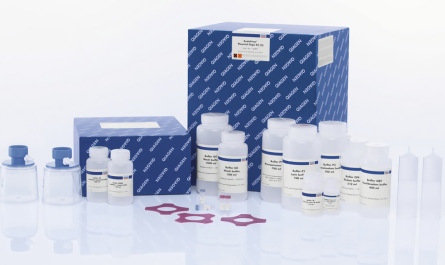Over the years rising infertility rates among couples and higher success rates of assisted reproductive techniques such as artificial insemination (AI) has led to a growing preference for these procedures. AI involves insertion of prepared sperm directly into the female’s reproductive tract in order to achieve pregnancy without sexual intercourse. It offers benefits such as bypassing anatomical barriers that could prevent fertilization, higher chances of conception than regular unprotected sex and allows single women and same-sex couples to have children. The global Artificial Insemination Market is estimated to be valued at US$ 9.2 Bn in 2023 and is expected to exhibit a CAGR of 8.1% over the forecast period 2023 to 2030, as highlighted in a new report published by Coherent Market Insights.
Market key trends:
One of the prominent trends driving growth in the artificial insemination market is the increasing adoption of assisted reproductive technologies (ART) due to rising infertility rates. Lifestyle changes, STDs, increasing stress levels, obesity and other factors are contributing to higher infertility issues. ART treatments have higher success rates compared to regular conception and many insurance companies now cover procedures such as IVF and AI. This has increased preference for ART over other traditional treatment methods like fertility drugs and is expected to drive higher demand for artificial insemination procedure in the coming years.
SWOT Analysis
Strength: Artificial insemination technology allows conception without intercourse, providing options for single, same-sex, or infertile couples. It is also minimally invasive compared to other fertility treatments.
Weakness: The procedure requires precise timing for optimal success, which can add stress. There is also a risk of multiple pregnancies from embryo transfer.
Opportunity: Rising rates of infertility and delays in childbearing have increased demand for assisted reproductive technologies. Growing social acceptance is also expanding the potential market.
Threats: Strict regulations and cultural barriers exist in some regions. The industry also faces ethical concerns around issues like embryo selection, commercialization, and surrogacy.
Key Takeaways
Global Artificial Insemination Market Size is expected to witness high growth over the forecast period of 2023 to 2030 supported by an increasing prevalence of infertility worldwide.
Regional analysis: North America is expected to continue dominating the global artificial insemination market during the forecast period supported by the presence of major players, high infertility rates, and growing acceptance of assisted reproductive technologies in countries like the United States. Asia Pacific is anticipated to witness the fastest growth fueled by strong government support for fertility treatments, growing medical tourism, and a continuously rising population.
Key players operating in the artificial insemination market are Pride Angel, Irvine Scientific, Hi-Tech Solutions, Rinovum Women’s Health, LLC, TenderNeeds Fertility, Conceivex, Inc., Labotech GmbH, Hamilton Throne Ltd., Biogenics Inc., Nikon Instruments Inc., Zander scientific Inc., and Surelife Pte Ltd.
*Note:
1. Source: Coherent Market Insights, Public sources, Desk research
2. We have leveraged AI tools to mine information and compile it


